One hundred teachers and principals from across North America bade an early farewell to summer, and headed to Newark, NJ, for the annual conference hosted by Education Office – Merkos Chinuch – of Chabad-Lubavitch.
Now in its fifth year, the Men’s Summer Chinuch Conference attracted educators from 34 Chabad institutions. From Miami, Pittsburgh, Montreal, New York City, Toronto, Detroit, Seattle, Los Angeles and Las Vegas, teachers, principals and deans flew and drove to the Robert Treat Hotel to pick the brains of leaders in Jewish education: rabbinical, psychological and pedagogical. Translating cutting edge ideas into classroom applications was the goal of the conference, said Education Office Director Rabbi Nochum Kaplan. “The presentations are on a high professional level. The schedule is tight. The topics are current,” said Rabbi Kaplan. “I expect everyone found a multitude of new attitudes and ideas to take home with them.”
Statistically proven as a tool to combat the ills of assimilation, day schools and yeshivas are not panaceas for the challenges of the modern world. Dr. Jerry Lob, an adolescent-clinical psychologist in Chicago and much sought after speaker on the nexus between Judaism and psychology, unraveled some of the mysteries behind teenage impulses by illuminating the physiological changes within the adolescent brain. In tandem, Rabbi Yehuda Leib Schapiro, Dean of Yeshiva Gedolah of Miami, examined real life answers to the spiritual challenges the crop up during this rocky developmental period. “You have to be down to earth and know what we are facing today,” said Rabbi Hirschel Raskin, the mashgiach ruchani, spiritual guidance counselor, of Mesivta Tomchei Temimim Lubavitch in Montreal. Driving the point home, Phillip Rosenthal, a computer and internet safety expert, pointed out internet dangers every educator – and parent – should be aware of.
Another sign of the times was the rapt attention paid to the ‘All Kinds of Minds’ presentation delivered by Dr. Judah Weller, Educational Director of P’TACH and the National Educational Resource Center in New York. Drawing on Dr. Mel Levine’s groundbreaking research into the eight neurodevelopmental pathways of learning, Dr. Weller offered essential keys to meeting the needs of individual students. Identifying how a child learns best is half the battle, but Rabbi Moishe Rodman, principal of Chabad Desert Torah Academy in Las Vegas, also appreciated the “practical, step-by-step methodologies for dealing with children with learning issues.” Rabbi Rodman, who holds a master’s degree in special education, is looking into attending Dr. Levine’s weeklong conference, possibly with some of his staff, to deepen his ability to successfully address learning differences.
Practicality drove the conference from start to finish, and one example of the fruit yielded by this approach was presented on the second day of the conference. Last year, after the conference ended, a group of educators began examining the ladder of skills that must be mastered to get to swim in the sea of Talmudic study. Rabbi Menachem Mendel Greenbaum, principal of Cheder Menachem in Los Angeles; Rabbi Levi Kaplan and Rabbi Mendel Eidelman, both of Oholei Menachem in Brooklyn, presented their finding that successful Talmud scholars begin budding in kindergarten. They set the room abuzz when they publicized their goal to develop a grade-by-grade skill checklist and detailed curriculum with the aim of refining a child’s mind for Talmud study from the earliest school experiences. “If an educator sees child has difficulty deal with critical thinking questions in the younger grades, chances are the weakness can be overcome so learning will be easier later on,” said Rabbi Greenbaum.
New and veteran educators alike learned new tricks from Rabbi Yoel Kramer, a leader in teacher training and principal member of Merkaz L’Hachsharot Morim. Rabbi Kramer divulged proven first day tactics that set the right tone for year. “The conference was jam packed with ideas from morning to midnight,” said Rabbi Greenbaum. “It was very intense and productive and very necessary.”
In signature Chabad fashion, the conference also included the newest ways technology can be used to promote Jewish education. A new Chabad day school web platform was presented and a Chabad-produced audio-visual tour of the Holy Temple on DVD broadcast at the conference. “Everything [at the conference] was so well done,” said Rabbi Raskin. “Now we have to go and achieve.”
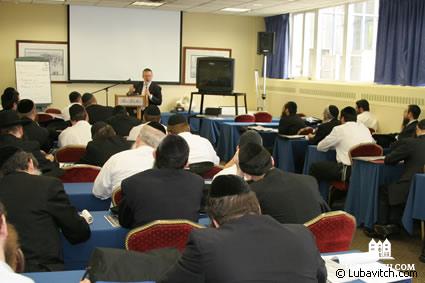
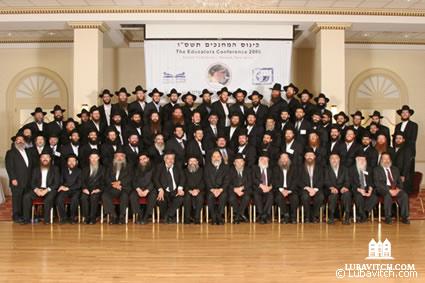
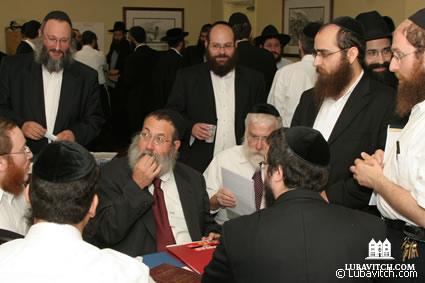
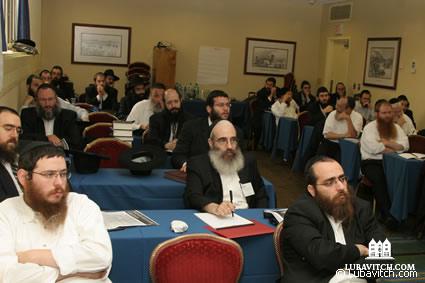
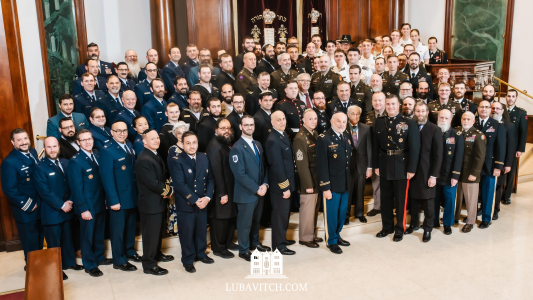

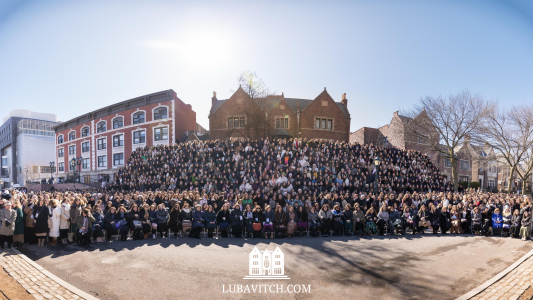




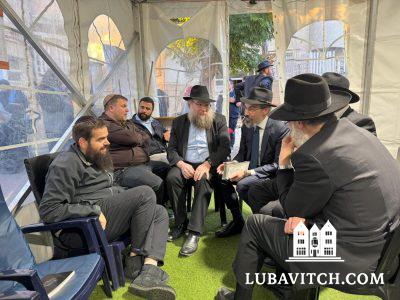

Be the first to write a comment.